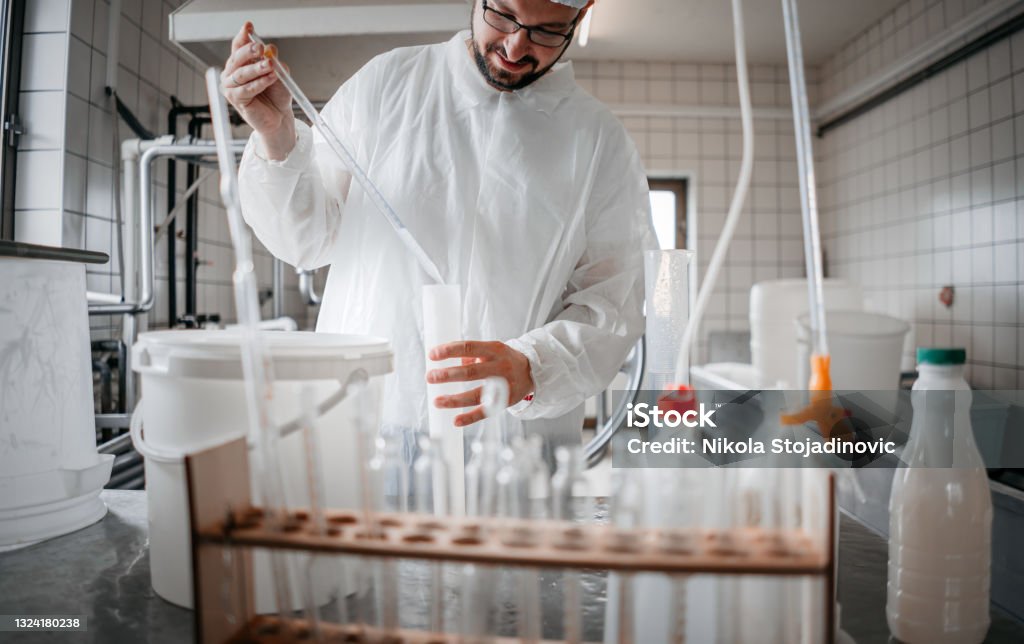
Frontier Research: The role of biotechnologists in the UK
Frontier Research: The role of biotechnologists in the UK At the intersection of science and innovation, biotechnology is emerging as a transformative force, providing solutions to pressing challenges and opening up new possibilities for the future. In the UK, biotechnologists are at the forefront of scientific research, using the power of living organisms to drive progress in areas such as medicine, agriculture and environmental sustainability. Let's delve into the dynamic world of biotechnology and celebrate the contribution of biotechnologists in shaping the discovery landscape in the UK. Uncovering the Science of Biotechnology Biotechnology is a multidisciplinary field that involves the manipulation of biological systems, organisms, or components for the purpose of developing products and technologies that help society. Biotechnologists use elements of biology, chemistry, genetics and engineering to solve many problems and create new solutions. In the United Kingdom, biotechnology is used in many areas: • Medicine: Biotechnologists help improve health through the development of new drugs, vaccines and diagnostic tools, providing the opportunity and paving the way for personalized medicine. for treatment. From biopharmaceutical companies conducting biological research to advances in genetic engineering in gene therapy, the healthcare industry relies on innovations in biotechnology to improve patient outcomes and improve health. • Agriculture and Food: Agricultural biotechnology plays an important role in increasing crop yields, increasing plant resistance to pests and diseases, and increasing agricultural productivity. Biotechnologists work on genetic modification, plant breeding techniques and bio stimulants to solve food safety problems and promote environmental sustainability in agriculture. • Environmental Protection: Biotechnology provides solutions for environmental improvement, waste management and renewable energy production. Biotechnologists are exploring bioremediation technologies to clean up contaminated areas, create biofuel from renewable resources, and design biodegradable materials to reduce environmental impact. • Industrial Biotechnology: The use of biotechnology such as biofuels, bioplastics, enzymes and biochemicals in industry is gaining momentum. Biotechnologists develop processes to achieve sustainable production, reduce waste and increase resource efficiency, contribute to the green economy and more. Supporting Innovation and Collaboration The UK's biotechnology industry thrives on innovation, entrepreneurship and innovation. Collaboration between academia, research institutions, government agencies and business partners. Biotechnologists work on scientific research, translational research, and technology transfer to bridge the gap between discovery and real-world applications. Public and private investment in biotechnology research and development (R&D) drives innovation cycles, supports new start-ups and scale-ups, and attracts talent into the UK's vibrant biotechnology ecosystem. Innovation In addition to the advancement of science, biotechnologists in the UK also consider the ethical and regulatory framework that governs biotechnology research and use. Ethical debates about gene therapy, genetically modified organisms (GMOs), and data privacy highlight the importance of new roles, public partnerships, and ethical issues in biotechnology. Regulatory bodies such as the Medicines and Healthcare products Regulatory Agency (MHRA), the Health and Safety Executive (HSE) and the Food Safety Authority (FSA) ensure that the technology and process used meets safety, quality standards and is ethical. . Adherence to laws, ethics and best practices is crucial to building public trust and ensuring the responsible delivery of biotechnological innovations. Education and Career Becoming a biotechnologist requires a strong foundation in the following fields: biological sciences, chemistry, bioinformatics and other disciplines. Many biotechnologists pursue higher education through bachelor's and master's degrees in biotechnology, bioengineering, molecular biology, or other fields. On-the-job training, internships, and research projects provide skills and insight into biotechnology applications. Employment for UK biotech professionals covering R&D, education, biopharmaceuticals, biotechnology start-ups, agricultural biotechnology companies, environmental organizations and management. Roles may include research scientist, bioinformatician, bioprocess specialist, administrative manager, clinical coordinator, or entrepreneur in a biotechnology startup. Empowering a sustainable future In summary, UK biotechnologists play a key role in driving new research, solving global challenges and building the future. Their work covers many areas, from healthcare to environmental care to economic change. As biotechnology continues to advance, biotechnologists continue to be at the forefront of unlocking the potential of life, contributing to human health, environmental protection and economic prosperity in the UK and beyond.


